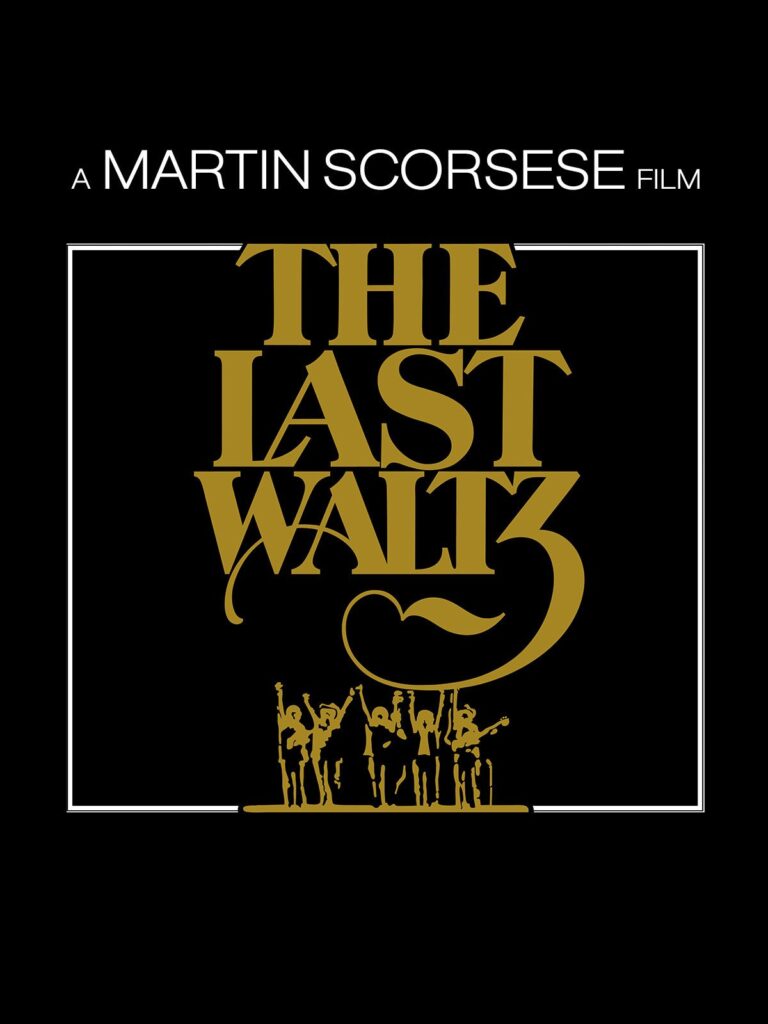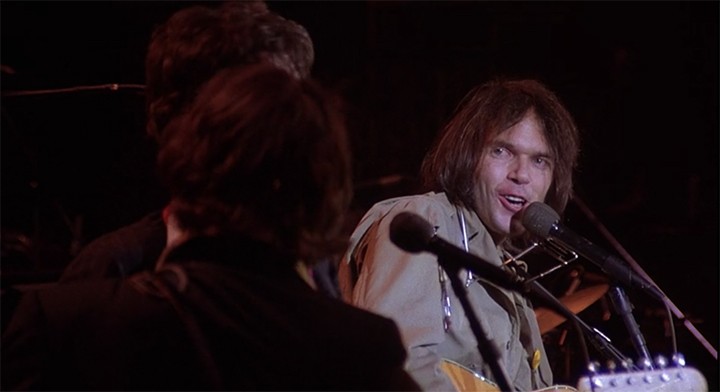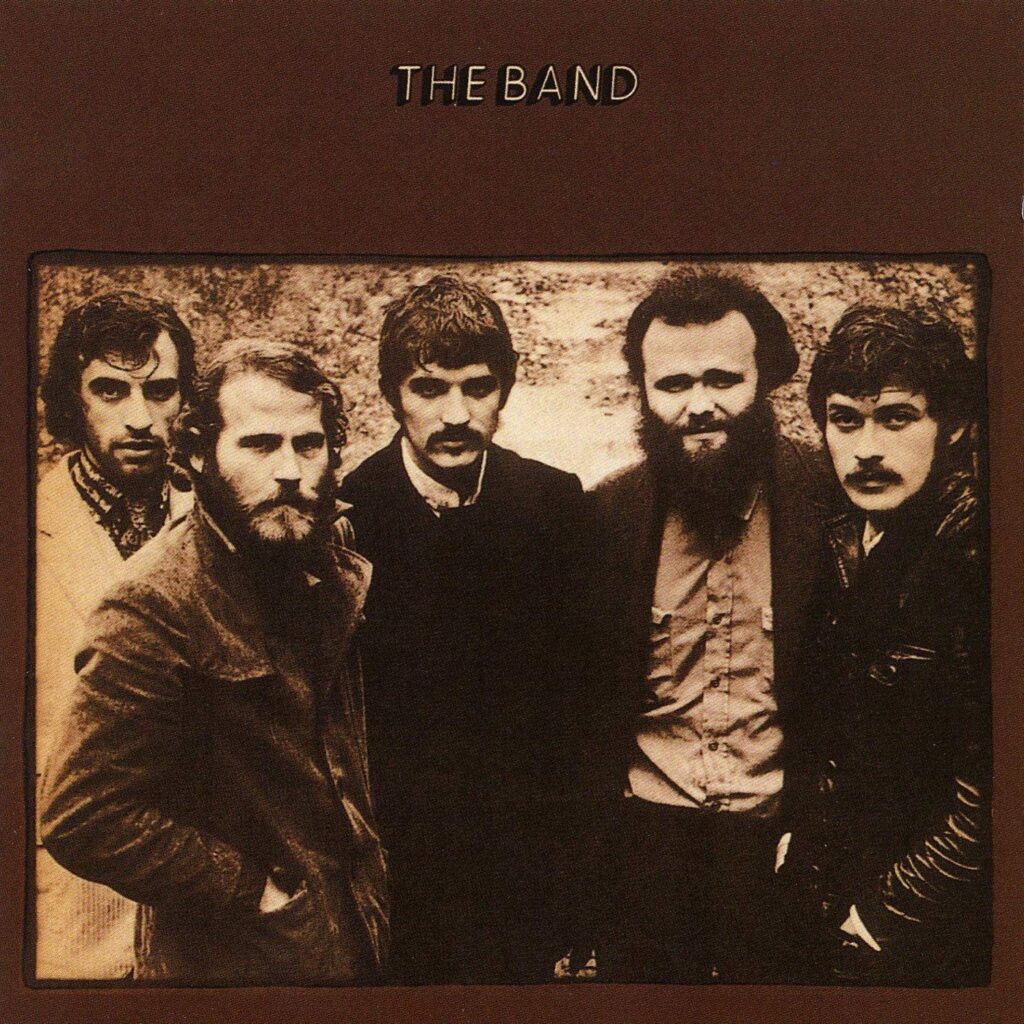” They finished the first half of the set with “Forever Young” and it was, without a doubt, the best rendition I have ever heard”

review by Douglas MacDonald
My great friend Patrick and I would spend our summer evenings with beer and acoustic guitars by the river, playing songs by many of the myriad musicians featured in The Last Waltz – a documentary capturing the legendary Canadian band: The Band.
Although we had seen other replications of the fateful concert at dreary casinos, on cold winter nights by the outskirts of town, we were thrilled to discover a new recreation of that famed occasion by some famous contemporary Canadian rock musicians, at the Jubilee Auditorium, on September 9, 2021 – artists worthy of the challenge.
The crowd inside the Jubilee looked as if they could have attended The Band’s final concert in 1976. Leaning over the rail of the upper balcony, the rows of seats below resembled the branches of a Christmas tree: tinseled silver hair and bald, shiny bulbs were scattered in pairs between the socially distanced seats. Flip phones slapped closed as the lights dimmed and spotlights illuminated purple curtains behind the instruments – a close imitation to the stage design of The Last Waltz, where, in San Francisco, forty-five years ago, The Band played their final concert.
The Band was a rock/country/R&B group from the 1960’s and 70’s that kept old folk standards prominent in their song writing, had hard hitting rock and roll numbers, as well as pioneered the boundaries of keyboard mechanics, pushing the limits of the technology of the day into unchartered territory.
Featuring all Canadian musicians, save for Levon Helm, from Tennessee, The Band had their final concert recorded by renowned filmmaker Martin Scorsese, who released the documentary The Last Waltz in 1978. Notable artists joined The Band onstage for that legendary performance, including Eric Clapton, Bob Dylan, Neil Young, Joni Mitchel, Van Morrison, and many others, which is where I was disappointed by this performance at the Jubilee; the only artist’s song they included in the setlist was “Helpless” by Neil Young.

However, this performance of “Helpless” was breathtaking; a simple, lugubrious song that commemorates three chords the whole way through, a heavenly choir during the chorus and a chthonic wrestle with liminality in the verses. It was as if my soul was trying to escape through the hairs on my arms as they reached toward the roof. The guitar solo by the House Band leader melted the mournfulness into a swaying statue: a slightly distorted, wavering tremolo feasted on the D major key with the melancholic prowess of a falling angel trying to fly.
Fog hung around the high-hanging lights as the drummer, organist, saxophonist, trumpeter, bassist, and band leader, playing a pitch-black Stratocaster, struck the opening country-rock riff of The Band’s hit song “Up on Cripple Creek”.

The crowd cheered and clapped as five acoustic-wielding men strode up-front, center-stage and began to strum along with the band.
Gaining steam was Jimmy Rankin, a singer/songwriter from Mabou, Nova Scotia, with five Juno Awards in his pocket. He sang the first verse with clear precision – a resolute tenor, and a natural leader. Wearing all black, his gray hair cut short, he was easy to see and engage with. Everyone onstage joined in on vocals for the chorus.
Barney Bentall, a Canadian icon raised in Calgary, led the second verse and sang with a Western feel; a wide-brimmed hat hung over his eyes as the mid-tempo song progressed through another chorus. His son, Dustin, stood lean and tall; his black cowboy boots and wide Stetson hat tilted him into the next verse. There was a similarity to his father’s intonation, with a slightly higher register and more freedom from the recorded melody of the song.
“Dusty” was generous enough to chat with me after the concert and informed me that five years ago, the Jubilee held a similar concert commemorating the fortieth anniversary of The Last Waltz, featuring Matt Anderson, Corb Lund, and Amy Helm, Levon Helm’s daughter.
The following verse was sung by Michael Bernard Fitzgerald, a singer/songwriter from Calgary. Michael began his career as a musician in 2006, touring with the likes of Bryan Adams, Ben Harper, Sam Roberts, and the Kings of Leon. His confident vulnerability exuded an honest approachability in his demeanor: comfortable flannel shirt and jeans, a gruff beard and tender, albeit slightly muddled voice; he was reminiscent of Oscar Isaac’s character from Inside Llewyn Davis, except congenial and promising rather than pugnacious and depressed.
Finally, the last verse was energetically sung by Colin Linden, a Grammy Award winner, and nine-time Juno Award winner from Toronto, who has played with The Band, Bob Dylan, John Prine, Bruce Cockburn, and many other notable musicians. His black coat was speckled with rhinestones, so that, jiving and swaying, he was like a dancing night sky – all twinkly with stars under the shadow of his black brimmed hat.
“Up On Cripple Creek” was less engaging for its music – the energy was lacklustre – than it was for its ability to introduce the cast of performers to the audience. The climax of the song comes at the end where, in 1976, Levon Helm, the drummer, and one of several vocalists in the band, yodels and belts out raw melodies in his gritty Southern drawl, a voice steeped in Kentucky whiskey and Tennessee tobacco.
Although I knew I would not be hearing the late Levon, I was disappointed by the lack of passion; however, these musicians haven’t been able to play in front of a live audience in over a year and a half. Their first two shows were in Calgary on September 2 and 3, 2021. One week later, here they were at the Northern Jubilee Auditorium.
One of the musicians onstage began to introduce his fellow bandmates – they all stood still, hands folded on their acoustic guitars; big hats cast shadows over their faces so that I couldn’t tell who was speaking. I enjoy the musician garb as much as the next person, but it reminded me of bands that wear sunglasses onstage: the audience loses that sense of connection that is so vital to music.
That is why my favourite performers of the night were Jimmy Rankin and Michael Bernard Fitzgerald: they wore no hats. I could connect with them flawlessly, knowing they were looking out at a crowd that was so thirsty for live music; a crowd starved for connection.
“Ophelia”, another original song by The Band, was played with a ferocity that did not miss the tight concise arrangement necessary to the original. The horn section was cannon fire behind guitar solos and heartfelt harmonies in the catchy, upbeat, rhythm and blues number.
The cover of “It Makes No Difference” was a different story. It went off very well until the pinnacle of the song where a guitar and saxophone weave and exchange solos following the final chorus. Colin Linden nearly set the room on fire with his volcanic licks, but the saxophone must not have been mic’d properly. I squinted (as though that helps one hear better) and strained my ears but could barely make out the controlled cacophony before me.
The elegance of the saxophone is an important contrast to the distorted rawness of the electric guitar, exemplifying the gentle beauty of love, and the gut-wrenching pain of heartache, respectively. It was a shame, because there weren’t many other opportunities during the performance for the horn section to show off their chops.
They finished the first half of the set with “Forever Young” and it was, without a doubt, the best rendition I have ever heard. The five vocalist’s harmonies were drenched in desperation – they traded verses again and it felt like they had come together as a band at that point. The House Band leader tore the room apart with another guitar solo in his thick, wayfaring style that straddled a distortion somewhere between David Gilmour and Mark Knopfler.
He somehow managed to imitate a slide guitar sound (maybe there was a slide at times, but he sat on a stool, behind a music stand, so I couldn’t see); the guitar solo melted the distance between heaven and hell.
After a brief intermission, the second set began with The Band’s hit song “The Night They Drove Old Dixie Down”. The next five songs were all sung individually by the leading band members who were spread out lengthwise across the stage with the House Band members behind them. They each performed an original song to showcase their song-writing skills and advertise their content. Although some of the songs were moving – others less so – it felt as though they drifted away from The Last Waltz, and instead were using the platform to bolster their individual careers at the expense of a plethora of songs I had hoped to hear.
They bowed, left the stage, and quickly returned to a cheering, appreciative crowd and played a two-song encore. The ever popular and enduring classic, “The Weight” was played with all the anguished faith the song demands. With five verses, it served the entertainers well, trading off verses again as each singer wore their heart on their sleeve as fog gathered around their feet.
“I Shall be Released”, the evening’s closing song, was a harmonious plea at the pearly gates, answering the audience’s prayer for musical salvation: “Any day now; Any day now; I shall be released!” Cheers roared for a moment, then quieted quickly.

Recent Comments